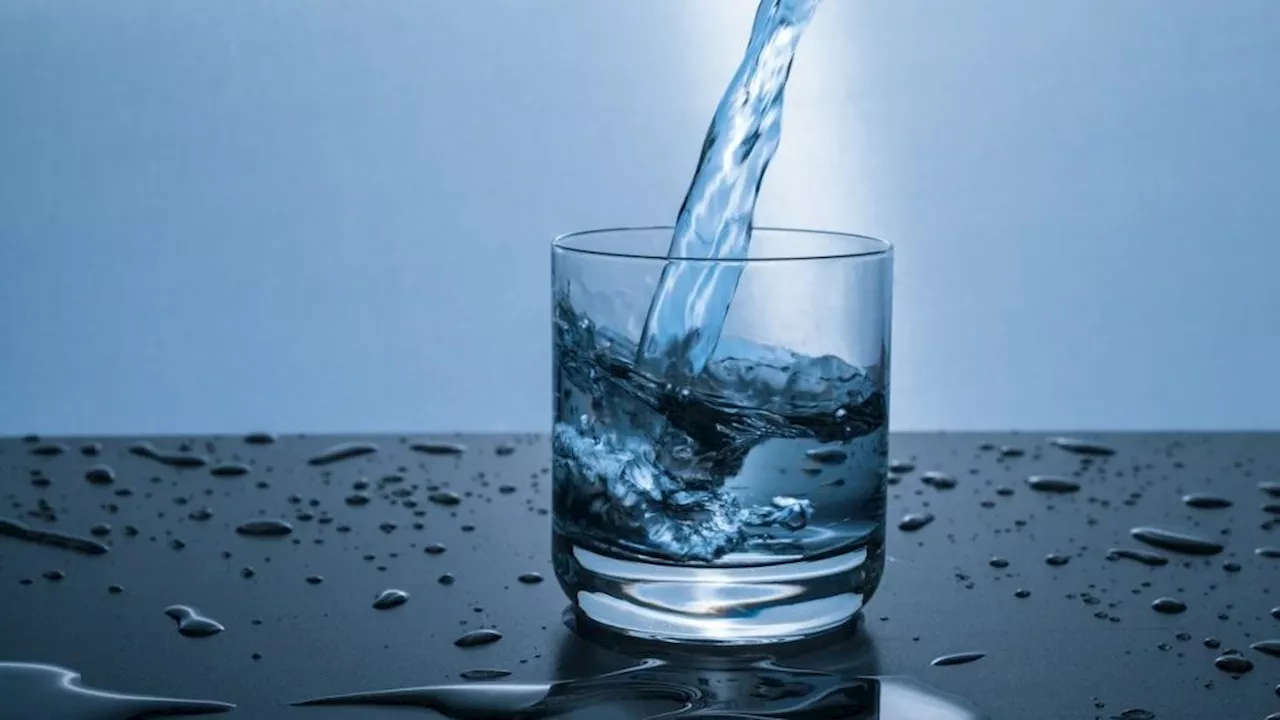Indigenous Services Minister Patty Hajdu expressed deep disappointment over the possibility of a First Nations drinking water bill failing to pass before the next election. The bill, known as Bill C-61, aims to ensure reliable access to clean drinking water and protection of source water for First Nations communities. Prorogation of Parliament poses a significant threat to the bill's passage, as it requires unanimous consent to proceed. Hajdu emphasized the need for opposition parties to support its reintroduction, stating that 'there is a path if people truly care about this.' Despite its potential, the bill faces criticism from some First Nations leaders and opposition threats, raising concerns about its future.
OTTAWA — It would be a “deep disappointment” if a First Nations drinking water bill dies completely before the next election, Indigenous Services Minister Patty Hajdu said recently. The bill would lead to a landmark change for First Nations , ensuring they have reliable access to clean drinking water and the ability to protect source water on their territories.
Both Hajdu and National Chief of the Assembly of First Nations Cindy Woodhouse Nepinak pushed for its passage in recent months including in December after MPs failed to give unanimous consent to pass the bill and send it to the Senate. It is now in danger of not proceeding at all because Prime Minister Justin Trudeau prorogued Parliament until March and any bill that hadn’t passed is dead unless MPs agree to restore it. Hadju said the government will move to reintroduce it when the House resumes on March 24 but it’s up to opposition parties to decide if they’ll support doing that. “There is a path if people truly care about this,” said Hajdu in an interview with The Canadian Press. “It’s heartbreaking for me that we got this close and that we didn’t get it across the finish line. And I guess the next steps will be in the hands of the opposition parties.” The government legislation known as Bill C-61 recognizes that First Nations have an inherent right to clean drinking water and commits the government to provide adequate and sustainable funding for water services in First Nations. Conservatives, NDP and Bloc Québécois have all vowed to vote non-confidence in the government, making the likelihood of the bill returning slim. Hajdu has long touted the bill as being transformational for First Nations communities, though it has seen some critiques from leaders, especially in Alberta, who say they were not properly consulted. The bill was the result of a class-action settlement agreement against Canada, which repealed the 2013 Safe Drinking Water for First Nations Act passed by former prime minister Stephen Harper. Leaders said that legislation was inadequate, didn’t provide enough funding and did not recognize the potential infringement on their inherent and treaty rights. The new legislation would require minimum water quality standards, along with funding at par or better than other jurisdictions. It would also see First Nations be able to co-ordinate with other jurisdictions on how to protect source water on their territories. “Right now, there is no law on the books that actually sets a minimum standard for regulations on water delivery. So there’s this big kind of gaping hole that needs to be filled with the new legislation,” Hajdu said. Woodhouse Nepinak said in an interview earlier she was similarly hoping the legislation could be passed despite turmoil in Parliament in the fall. She said she and her colleagues will continue with their advocacy despite Parliament being prorogued. “Water is a gift from the Creator flowing through the veins of this land, connecting all living beings. Water sustains not just our bodies, but our spirits and our traditions and our way of life for all Canadians. It’s a necessity, not a privilege,” Woodhouse Nepinak said. “There was support in the House of Commons to enable a GST cut on alcohol for the holidays. I believe there should be at that much political will left in the House of Commons to do the right thing for reconciliation: prioritize water.”“It’s my hope that if we don’t get this passed in some miraculous way in this session, that whoever’s in government next time picks up this, I think, incredibly thoughtful legislation that was co-drafted with First Nations people.
First Nations Drinking Water Bill C-61 Indigenous Services Minister Patty Hajdu Parliament Prorogation Reconciliation Clean Water Access Source Water Protection
Canada Latest News, Canada Headlines
Similar News:You can also read news stories similar to this one that we have collected from other news sources.
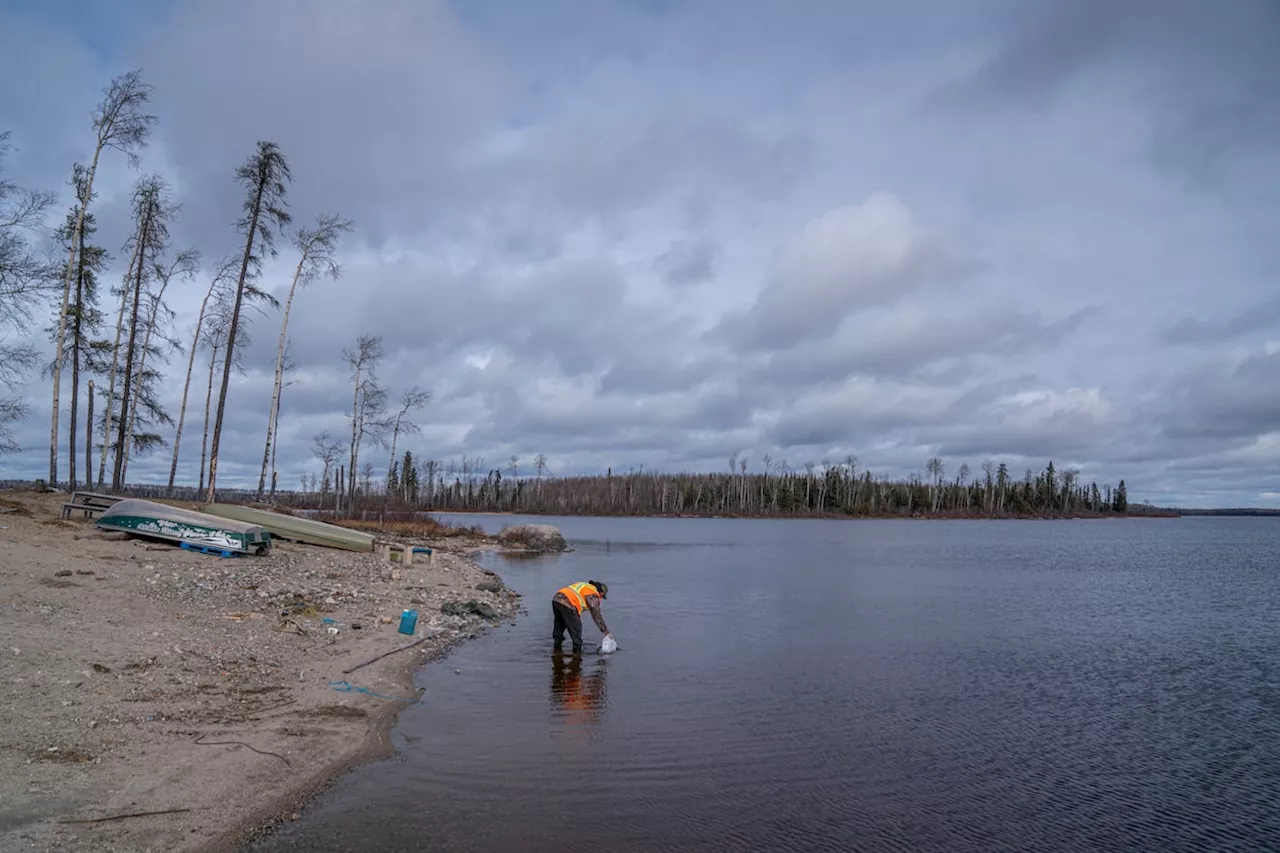 Prorogation of Parliament Kills Bill C-61 Aimed at Addressing First Nations Drinking Water IssuesThe prorogation of Parliament has ended hopes for a federal bill that sought to address the long-standing issue of unsafe drinking water on First Nations reserves.
Prorogation of Parliament Kills Bill C-61 Aimed at Addressing First Nations Drinking Water IssuesThe prorogation of Parliament has ended hopes for a federal bill that sought to address the long-standing issue of unsafe drinking water on First Nations reserves.
Read more »
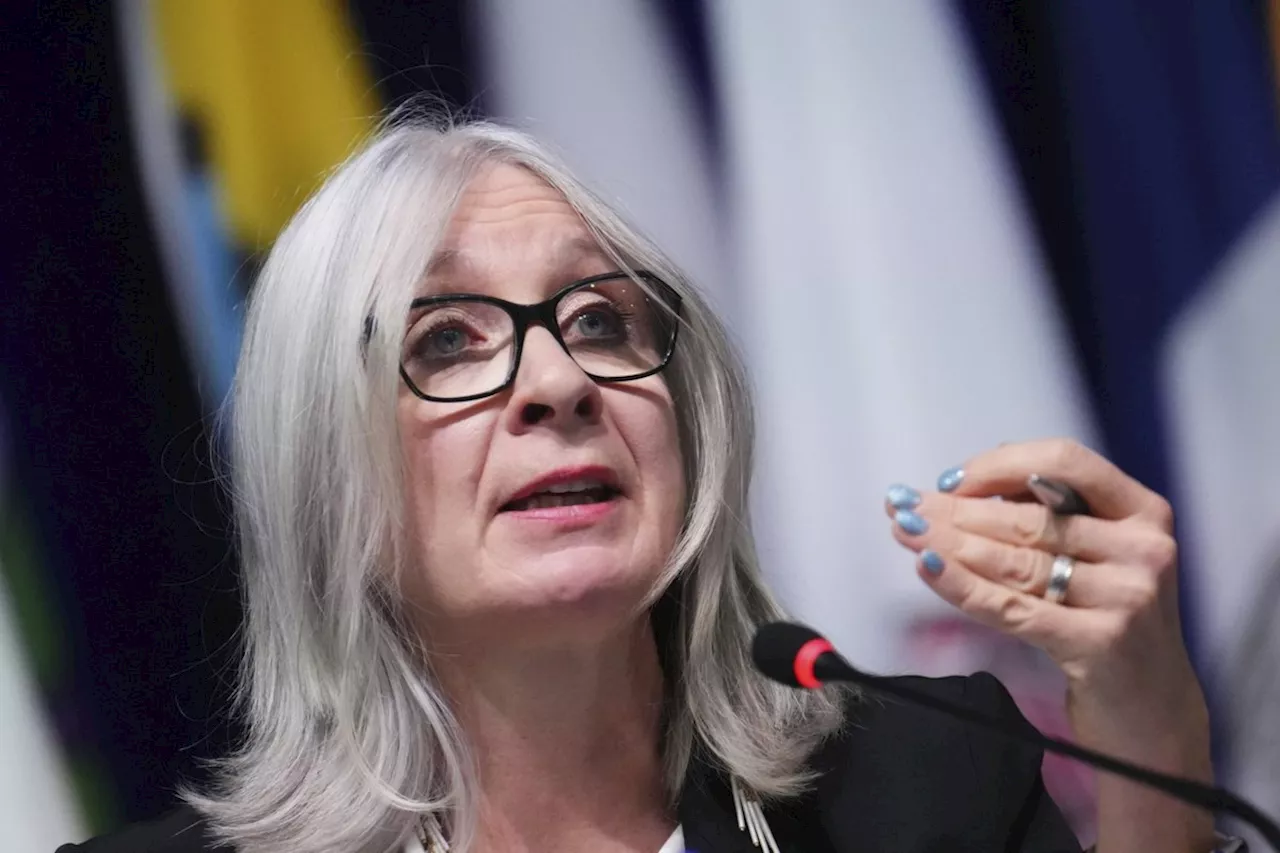 First Nations Drinking Water Bill Faces Uncertain Future After ProrogationA landmark bill aimed at ensuring First Nations communities have access to clean drinking water and the ability to protect source water on their territories faces an uncertain future after Parliament was prorogued. While the government plans to reintroduce the bill, its passage hinges on the support of opposition parties.
First Nations Drinking Water Bill Faces Uncertain Future After ProrogationA landmark bill aimed at ensuring First Nations communities have access to clean drinking water and the ability to protect source water on their territories faces an uncertain future after Parliament was prorogued. While the government plans to reintroduce the bill, its passage hinges on the support of opposition parties.
Read more »
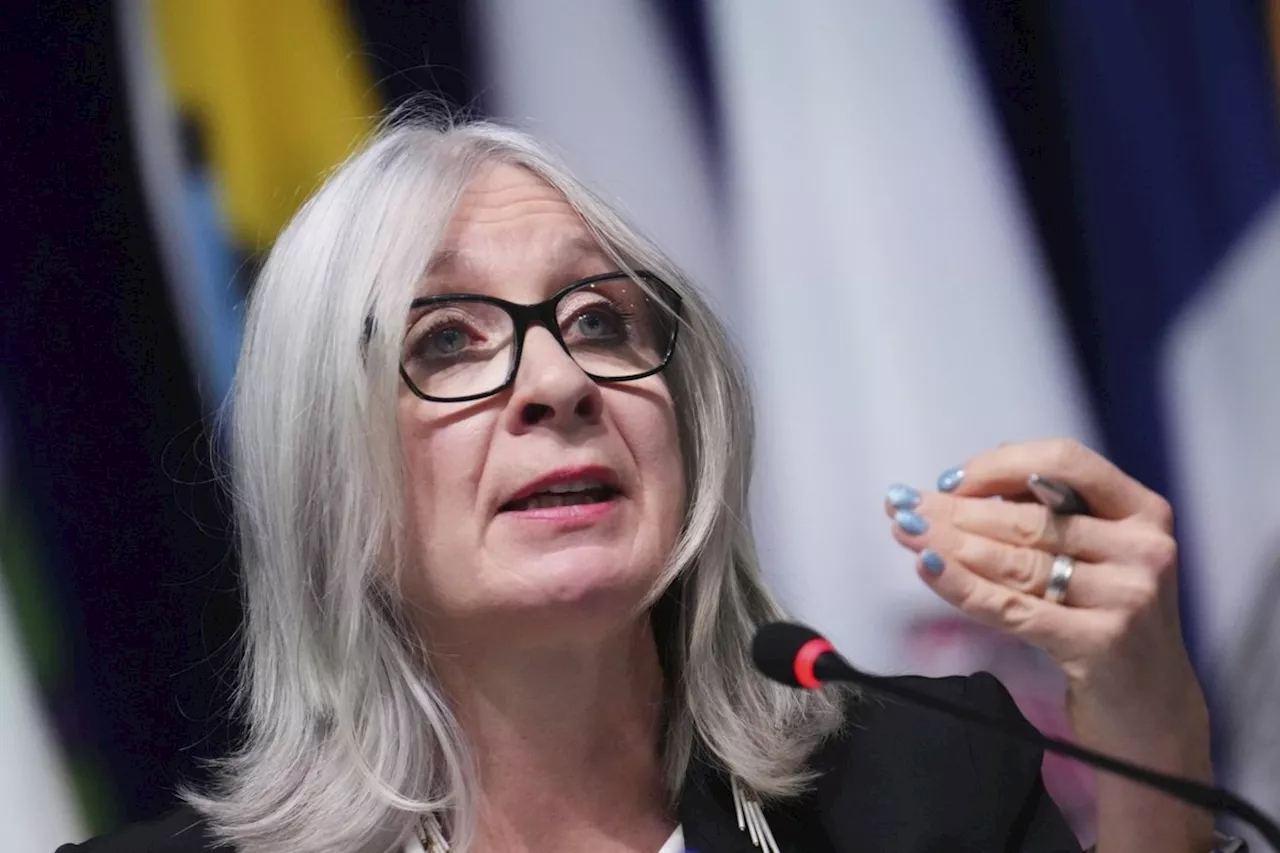 First Nations Drinking Water Bill Faces Uncertain FutureA landmark bill aimed at ensuring First Nations have reliable access to clean drinking water faces an uncertain future after Parliament was prorogued.
First Nations Drinking Water Bill Faces Uncertain FutureA landmark bill aimed at ensuring First Nations have reliable access to clean drinking water faces an uncertain future after Parliament was prorogued.
Read more »
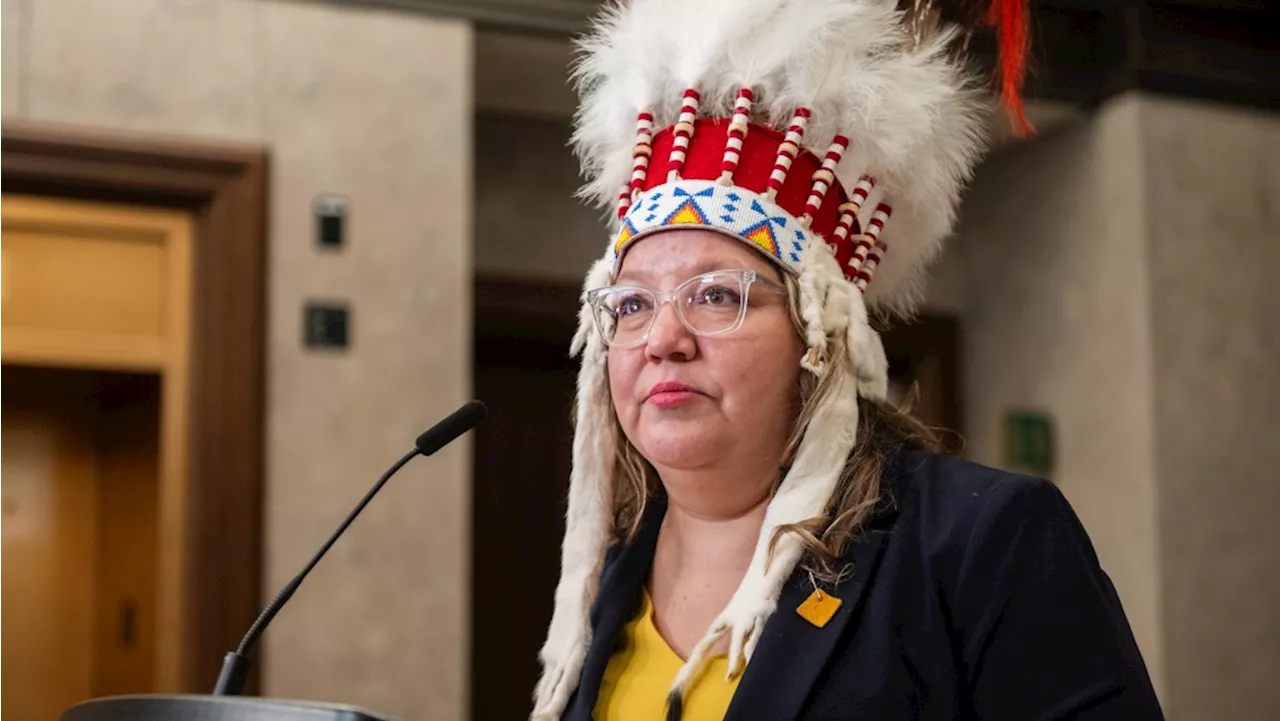 First Nations National Chief Calls for Unity and Action on Pressing IssuesFirst Nations National Chief Cindy Woodhouse Nepinak reflects on her first year in leadership, highlighting the progress made in unifying the First Nations community. She also addresses the ongoing challenges faced by First Nations people, including the rejection of a proposed compensation for underfunding of First Nations children in care and the persistent issue of boil water advisories.
First Nations National Chief Calls for Unity and Action on Pressing IssuesFirst Nations National Chief Cindy Woodhouse Nepinak reflects on her first year in leadership, highlighting the progress made in unifying the First Nations community. She also addresses the ongoing challenges faced by First Nations people, including the rejection of a proposed compensation for underfunding of First Nations children in care and the persistent issue of boil water advisories.
Read more »
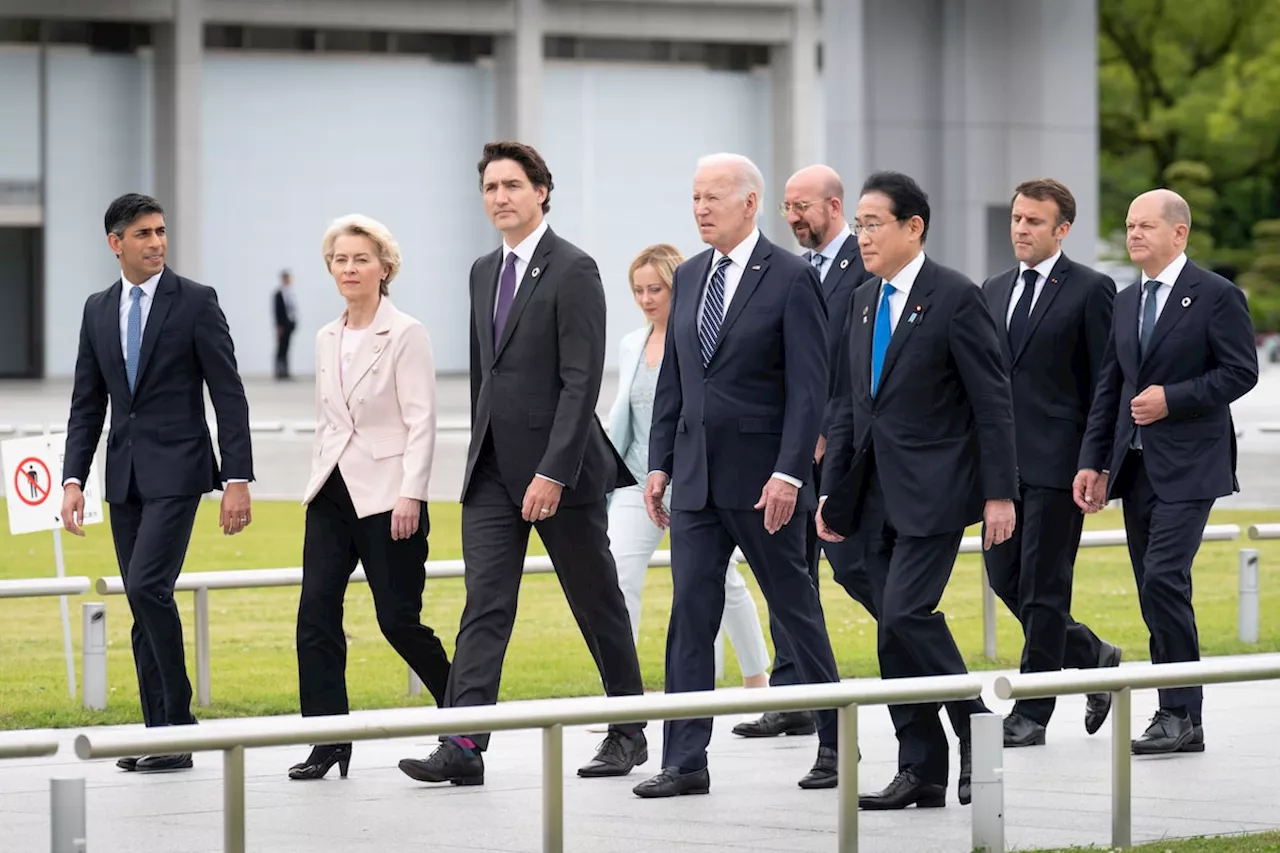 First Nations threaten to withdraw support of G7 over lack of communication with OttawaA cancelled meeting prompted the Chiniki and Goodstoney to send a sharply worded letter to the Indigenous Services Minister’s office, demanding it be rescheduled, and calling her failure to meet their leadership a ‘troubling disregard’ for their...
First Nations threaten to withdraw support of G7 over lack of communication with OttawaA cancelled meeting prompted the Chiniki and Goodstoney to send a sharply worded letter to the Indigenous Services Minister’s office, demanding it be rescheduled, and calling her failure to meet their leadership a ‘troubling disregard’ for their...
Read more »
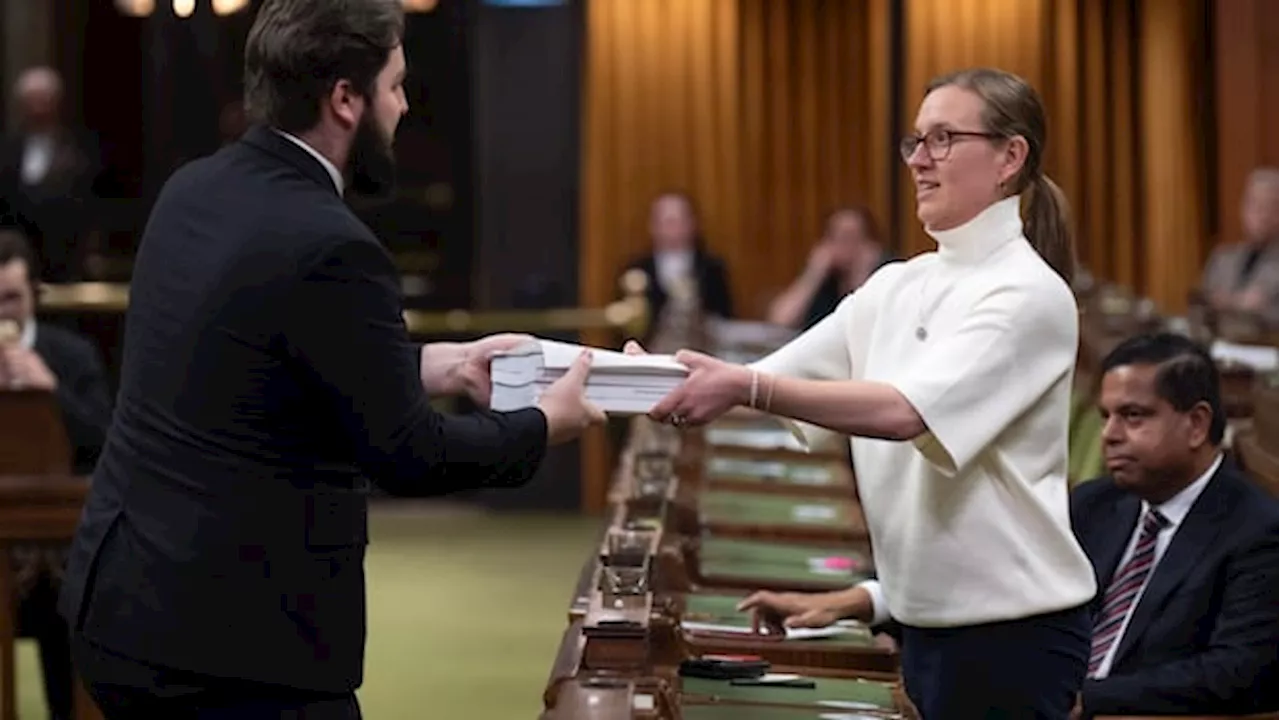 First Nations leaders blast feds for attributing deficit overrun to Indigenous legal claimsGovernment House leader Karina Gould tables the Fall Economic Statement in the House of Commons in Ottawa on Monday, Dec. 16, 2024.
First Nations leaders blast feds for attributing deficit overrun to Indigenous legal claimsGovernment House leader Karina Gould tables the Fall Economic Statement in the House of Commons in Ottawa on Monday, Dec. 16, 2024.
Read more »
